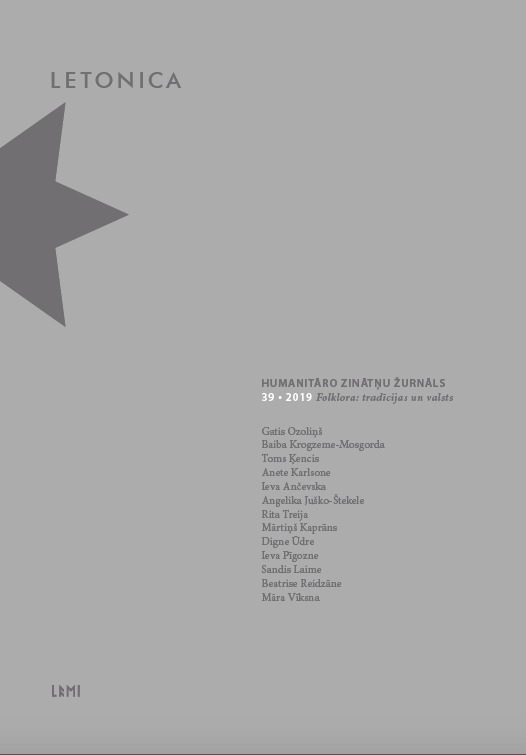Ārstniecības augi un dziedināšana laika un valdošās varas kontekstā
Medicinal Herbs and Their Use in the Context of Time and Ruling Powers
Author(s): Ieva AnčevskaSubject(s): Anthropology, Customs / Folklore, Ethnohistory, Oral history, Culture and social structure , Health and medicine and law
Published by: Latvijas Universitātes Literatūras, folkloras un mākslas institūts
Keywords: medicinal herbs; healing tradition; society; ruling power; historical context; tradition preservation;
Summary/Abstract: Medicinal herbs and their use are part of the healing tradition, but over certain periods it has been distanced from the rest of the healing tradition. This article examines the reasoning behind this tendency over different periods in history. Through studying historical records about the development of the healing tradition, it is evident that up until the 16th century, knowledge about the medicinal herbs and their use was passed on through generations. The initial bans by the conquerors and missionaries were mostly directed towards the part of the healing tradition that was linked to magic and ritual activities, and was based upon the ancient worldview. During the Inquisition in the 16th and 17th centuries, the preservation of the healing tradition was endangered, because witch trials eliminated most of the individuals familiar with the tradition. After, when in certain areas there was no one to turn to for healing, many ungrounded treatments emerged in popular medicine. These treatments that were not tested in experience in the past, often resulted in undesirable consequences. Hence, part of society gradually formed a negative attitude towards the healing tradition as a whole. This tendency was later reinforced through the development of scientific medicine, which was distanced from the traditional healing. In the end of the 19th century, the Neo-Latvian movement drew attention to folk healing and gathered many important testimonials about this tradition. The researchers of the healing tradition have appreciated the rich knowledge about the healing plants that had been accumulated over many centuries before.In the 20th century, scientific medicine experienced fast developments, the number of doctors increased, and certain competition emerged between the medics and individuals practicing folk healing. There were different attitudes towards healthcare in the society – some supported only the scientific medicine, others still relied on the traditional healing, and some used both. In the meantime, during the interwar period the collection and cultivation of medicinal herbs was particularly promoted to facilitate the well-being and economic prosperity of people. After World War II, during the Soviet time, folk healing was prohibited, but collecting of healing remedies was continued and popularized in order to obtain ingredients for medicine production. Nowadays, the knowledge of medicinal herbs and their use in rural areas is still inherited in families, thus ensuring partial preservation of the healing tradition.
Journal: Letonica
- Issue Year: 2019
- Issue No: 39
- Page Range: 77-91
- Page Count: 15
- Language: Latvian

